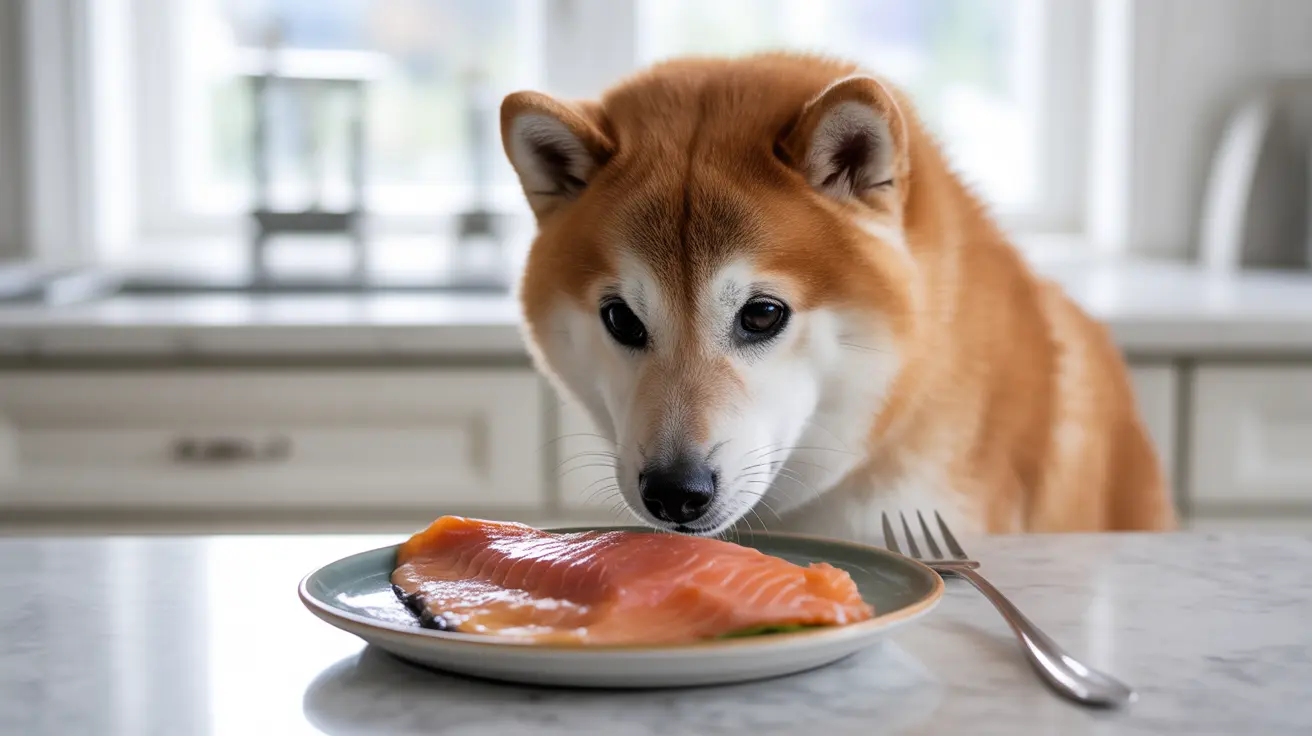As pet owners increasingly share their favorite foods with their furry companions, the question of whether dogs can have smoked salmon has become a common concern. While salmon itself can offer valuable nutrients for dogs, the smoked variety presents several significant health risks that pet owners need to understand.
In this comprehensive guide, we'll explore why smoked salmon isn't recommended for dogs, what risks it poses, and what safer alternatives you can consider for your canine companion.
The Dangers of Smoked Salmon for Dogs
Smoked salmon poses several serious health risks to dogs that make it an unsuitable food choice. Understanding these risks is crucial for protecting your pet's health.
High Salt Content and Sodium Poisoning
The smoking process involves heavy salting, resulting in a product with dangerous sodium levels for dogs. Excessive salt intake can lead to severe dehydration, kidney problems, and potentially fatal sodium ion poisoning. Even small amounts can cause concerning symptoms like extreme thirst, vomiting, and diarrhea.
Risk of Parasites and Bacteria
The smoking process doesn't always kill harmful parasites, particularly Neorickettsia helminthoeca, which causes salmon poisoning disease. This potentially fatal condition requires immediate veterinary intervention and can cause severe symptoms within days of consumption.
Harmful Additives and Seasonings
Commercial smoked salmon often contains additional ingredients that are toxic to dogs, including:
- Garlic and onion powders
- Various spices and preservatives
- Chemical smoking agents
- Added flavorings
Safe Salmon Alternatives for Dogs
While smoked salmon is dangerous, properly prepared salmon can be beneficial for dogs. Here's how to safely incorporate salmon into your dog's diet:
Properly Cooked Salmon
Plain, fully cooked salmon offers numerous health benefits, including:
- Omega-3 fatty acids for coat and skin health
- High-quality protein for muscle maintenance
- Essential vitamins and minerals
- Anti-inflammatory properties
Serving Guidelines
When feeding salmon to your dog, follow these safety rules:
- Cook thoroughly to kill parasites
- Remove all bones
- Avoid seasonings and oils
- Serve in moderation (about 1 oz per 10 lbs of body weight)
What to Do If Your Dog Eats Smoked Salmon
If your dog consumes smoked salmon, take these immediate steps:
- Monitor for symptoms like vomiting, diarrhea, or lethargy
- Contact your veterinarian if symptoms appear
- Provide fresh water to prevent dehydration
- Watch for signs of salmon poisoning disease, which can develop within days
Frequently Asked Questions
Is smoked salmon safe for dogs to eat, and what are the main health risks?
No, smoked salmon is not safe for dogs. The main risks include high salt content, potential parasites, harmful additives, and the risk of salmon poisoning disease.
What symptoms should I watch for if my dog eats smoked salmon accidentally?
Watch for vomiting, diarrhea, excessive thirst, lethargy, fever, and reduced appetite. If you notice any of these symptoms, contact your veterinarian immediately.
How does cooked salmon compare nutritionally and safety-wise to smoked salmon for dogs?
Plain cooked salmon is much safer than smoked salmon. It provides the same nutritional benefits without the risks of excess sodium, harmful additives, or parasites that can be present in smoked salmon.
Can smoked salmon cause salmon poisoning disease or sodium ion poisoning in dogs?
Yes, smoked salmon can cause both conditions. Salmon poisoning disease comes from parasites, while sodium ion poisoning results from excessive salt content. Both conditions can be life-threatening.
What is the best way to feed salmon to my dog without risking their health?
The safest way is to feed plain, thoroughly cooked salmon with no seasonings or additives. Remove all bones, and serve in moderation as part of a balanced diet.
Remember, while plain cooked salmon can be a healthy addition to your dog's diet, smoked salmon should always be avoided. If you want to give your dog the benefits of fish, stick to properly prepared, unseasoned options, and always consult with your veterinarian about appropriate portions for your specific pet.






